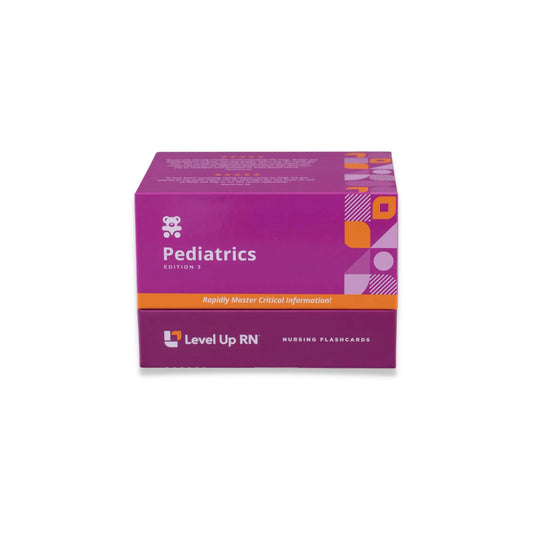Hi, I'm Cathy with Level Up RN. In this video, I'm going to continue my coverage of renal system disorders from our Level Up RN pediatric nursing flashcards. Specifically, I will be talking about hemolytic uremic syndrome. And at the end of the video, I'm going to give you guys a little quiz to test your understanding of some of the key points I'll be covering, so definitely stay tuned for that. And if you have our flashcards, go ahead and pull out your flashcard on hemolytic uremic syndrome so you can follow along with me.
Hemolytic uremic syndrome is a disorder that is most commonly the result of a gastrointestinal infection with a particular strain of E. coli. So this strain of E. coli produces a toxin, which causes the destruction of red blood cells, damage to the blood vessels in the kidneys, and a decrease in platelets. A child can be infected with this particular strain of E. coli if they consume undercooked meats, raw or unpasteurized milk, or contaminated fruits or vegetables, or if they swim in contaminated pools or lakes, for example. So these are all important risk factors for hemolytic uremic syndrome. Signs and symptoms of this disorder include abdominal pain, fever, nausea and vomiting, bloody diarrhea, abnormal bleeding, and increased bruising due to the reduction in platelets. Abnormal labs present with hemolytic uremic syndrome include a decrease in hemoglobin and hematocrit, as well as a decrease in platelets. We will have an increase in creatinine due to kidney dysfunction, and then a urinalysis will show the presence of blood and protein in the urine.
Treatment of this disorder includes the administration of IV fluids, as well as packed red blood cells for anemia. So antibiotics are typically not used in the treatment of this disorder because they can actually increase the release of toxins from the injured bacteria in the intestine. So most patients make a full recovery, but complications can include acute kidney injury, as well as chronic kidney disease, which may necessitate dialysis. And finally, in order to prevent hemolytic uremic syndrome, it's important to cook meats thoroughly, avoid unpasteurized milk and juice, make sure utensils and cooking surfaces are clean, avoid unsafe swimming areas, and then last but not least, maintain good hand hygiene.
All right. It's quiz time, and I've got three questions for you.
Question number one. Hemolytic uremic syndrome is most often caused by a gastrointestinal infection from blank.
The answer is E. coli. And if you answered with E. coli and the particular strain of E. coli, then bonus points to you.
Question number two. How are hemoglobin, hematocrit, and platelets affected by hemolytic uremic syndrome?
The answer is they will all be decreased.
Question number three. What two abnormal findings will be present in the urinalysis of a patient with hemolytic uremic syndrome?
The answer is the urinalysis will show hematuria and proteinuria.
All right. That's it for this video. I hope it was helpful for you. Take care and good luck with studying.


